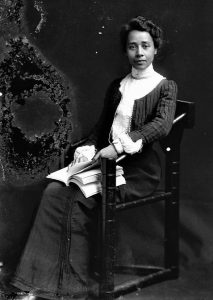 How would our nation look today if philanthropic powers had opened their coffers decades earlier to the likes of Fannie Lou Hamer, Silvia Rivera, Yuri Kochiyama and Wilma Mankiller?
How would our nation look today if philanthropic powers had opened their coffers decades earlier to the likes of Fannie Lou Hamer, Silvia Rivera, Yuri Kochiyama and Wilma Mankiller?
Vanessa Daniel, founder and executive director of Groundswell Fund, puts that rhetorical question to foundations and wealthy donors. Then she follows with a quick retort: We can only imagine what could have been yesterday. But we can certainly impact with our philanthropic support to make a difference today.
Daniel’s strongest argument is that women of color generally – and Black women in particular – deliver the highest turnout on election day. Add to that, they are the most progressive voters and most civically active in their communities year round.
“What is it costing progressives to fund them last and least?” She points to the shameful funding gap to grassroots organizations as a whole, reflecting 0.6 percent of annual Foundation giving.
Over the last decade, Groundswell Fund and Groundswell Action Fund, the organizations that Daniel leads, have moved more than $60 million to the field. That figure shrinks to a trickle beside the estimated $67 billion in annual giving by U.S. foundations overall.
For more than 15 years, Groundswell, the largest funder of reproductive justice organizations, has centered its support on grassroots organizing led by women of color, especially those who are Black, Indigenous and Transgender. The Groundswell Action Fund also funds political empowerment of women of color-led initiatives in marginalized communities.
While other donors ignore Black and Brown women in leadership, Daniel opens arms and doors. Forging pathways that would otherwise not exist, Groundswell is often the first funder and the entity that gives groups leverage and a springboard to other funding.
Decrying what she calls “social change gentrification,” Daniel penned a New York Times commentary taking liberal philanthropy to task. Instead of funding the brilliance and innovation of Black and Brown women, they get bypassed for larger, white-led organizations who are given the green light and dollars to replicate their work, she observes.
Daniel’s challenge is to prick the conscience of monied sources, encouraging them to utilize Groundswell as a partner and bridge to those overlooked or ignored.
The pitch is compelling for anyone who cares about genuine social transformation.
“The best way to make change is to resource the people changing lives on the ground,” Daniel insists. “When women of color lead and win, we all win!”




